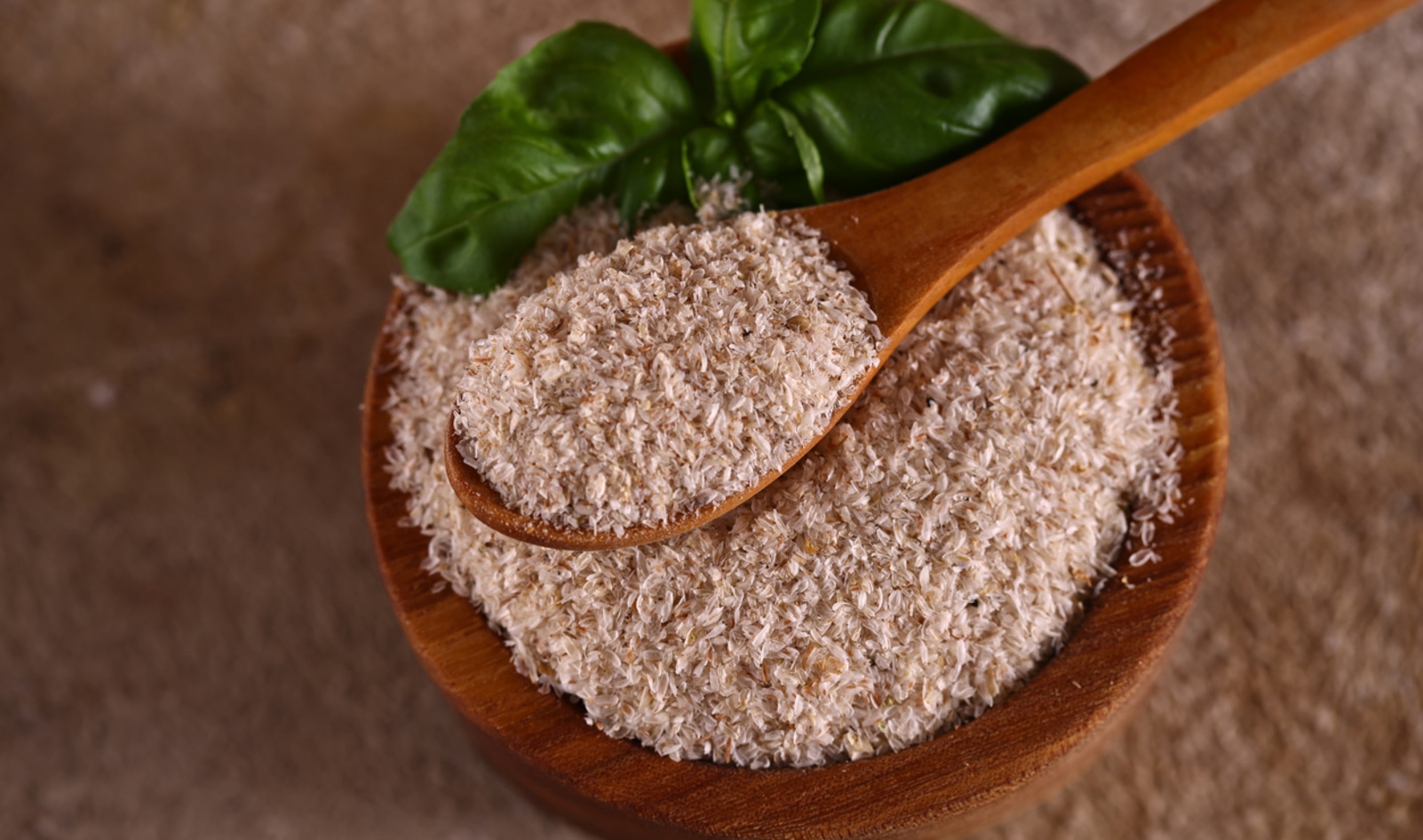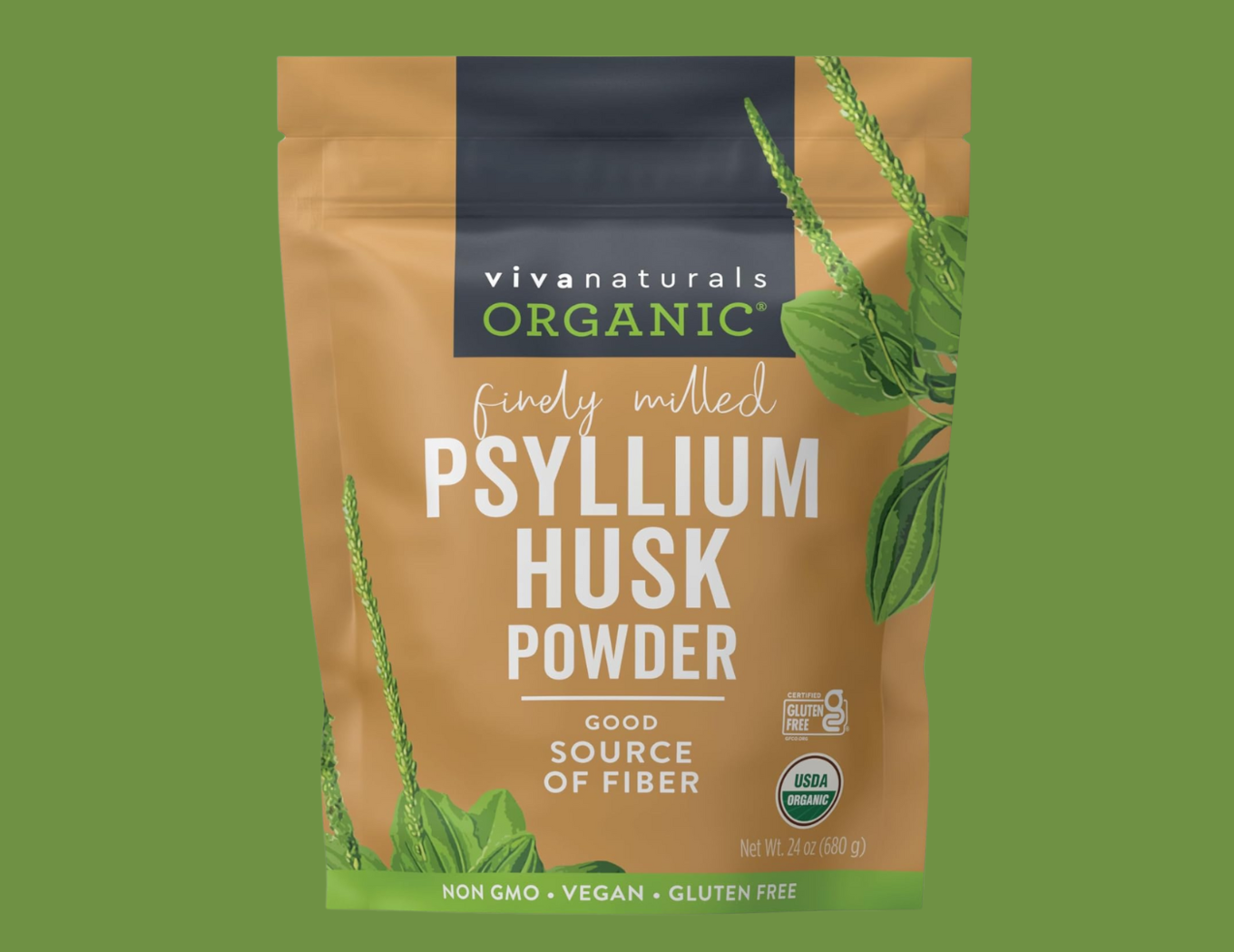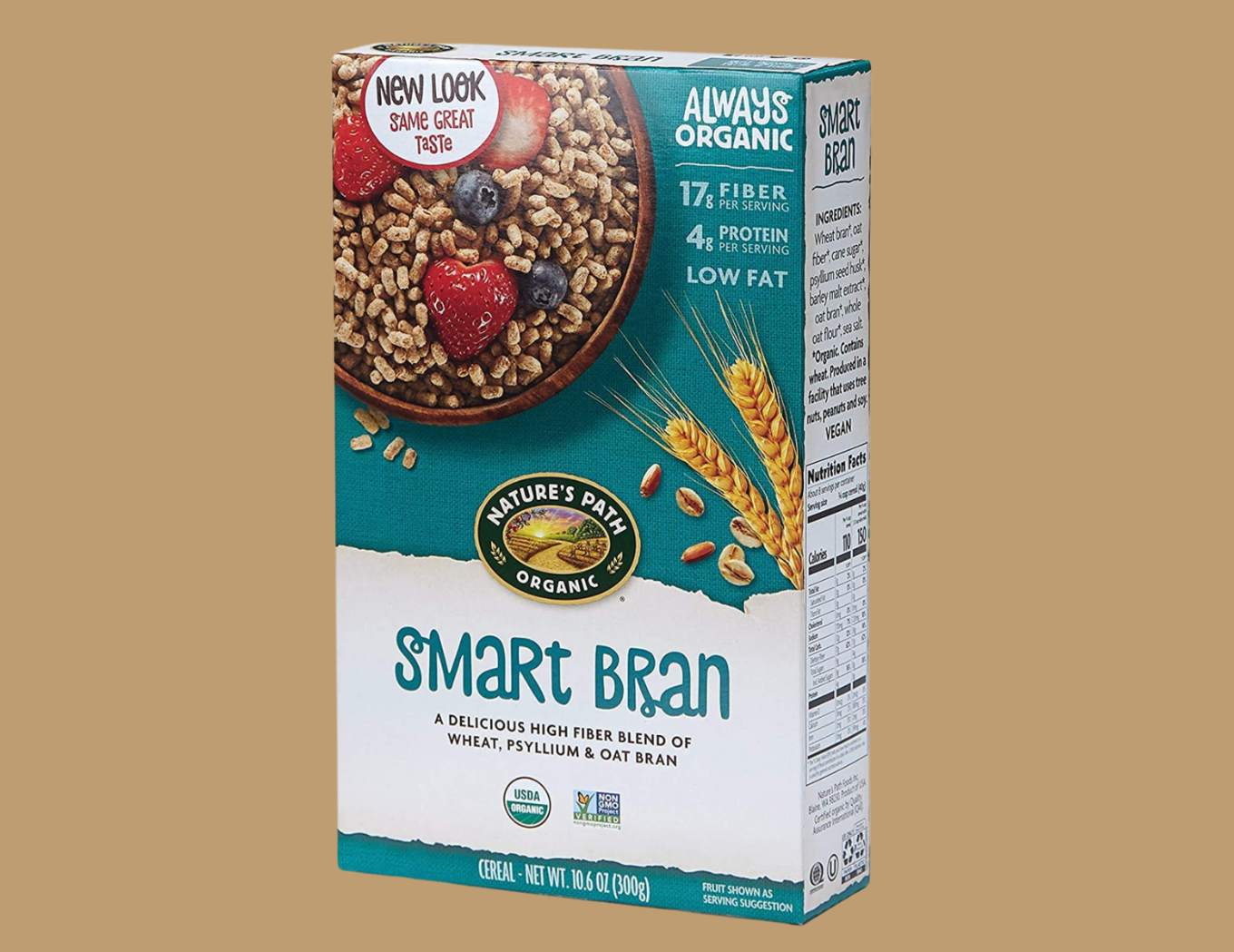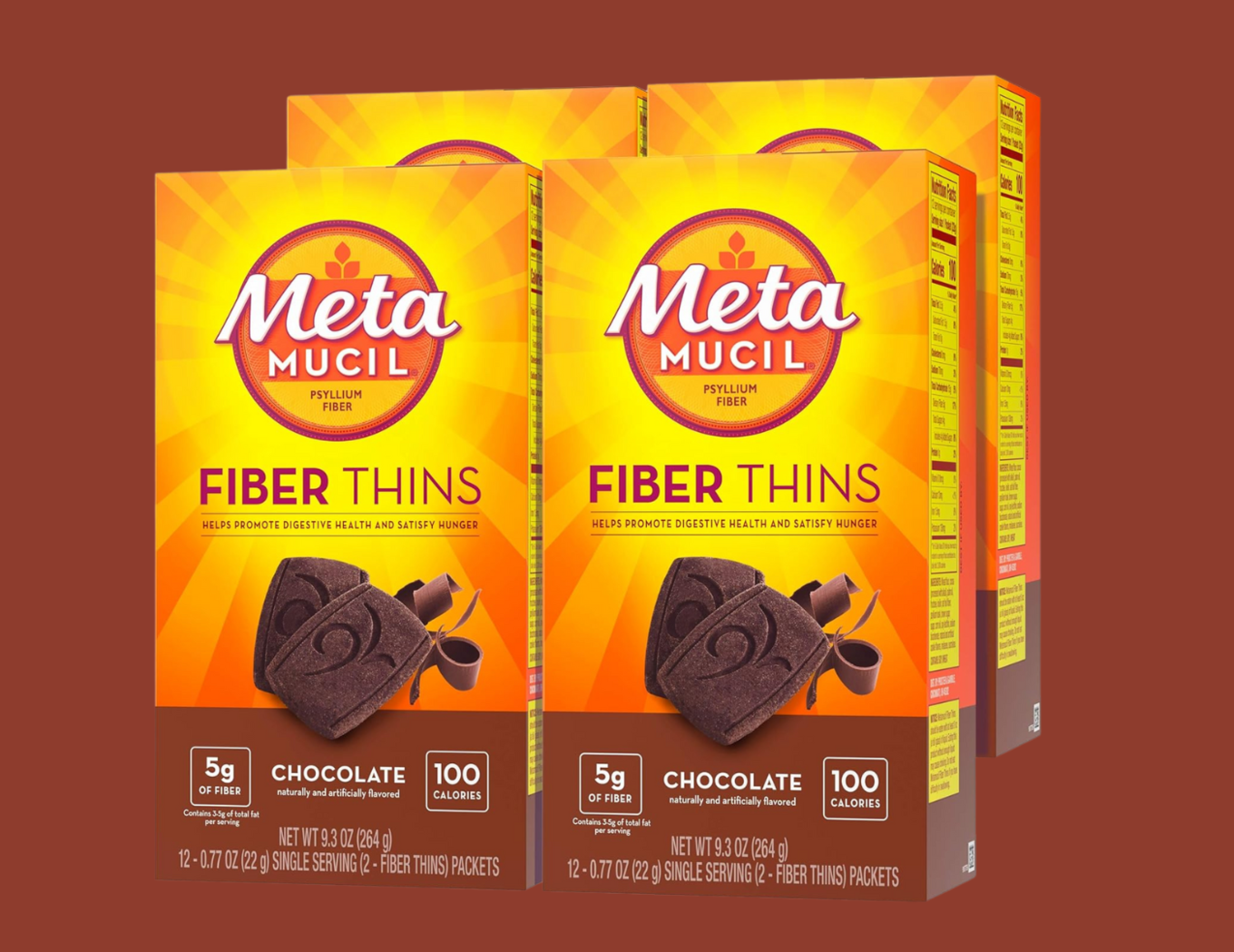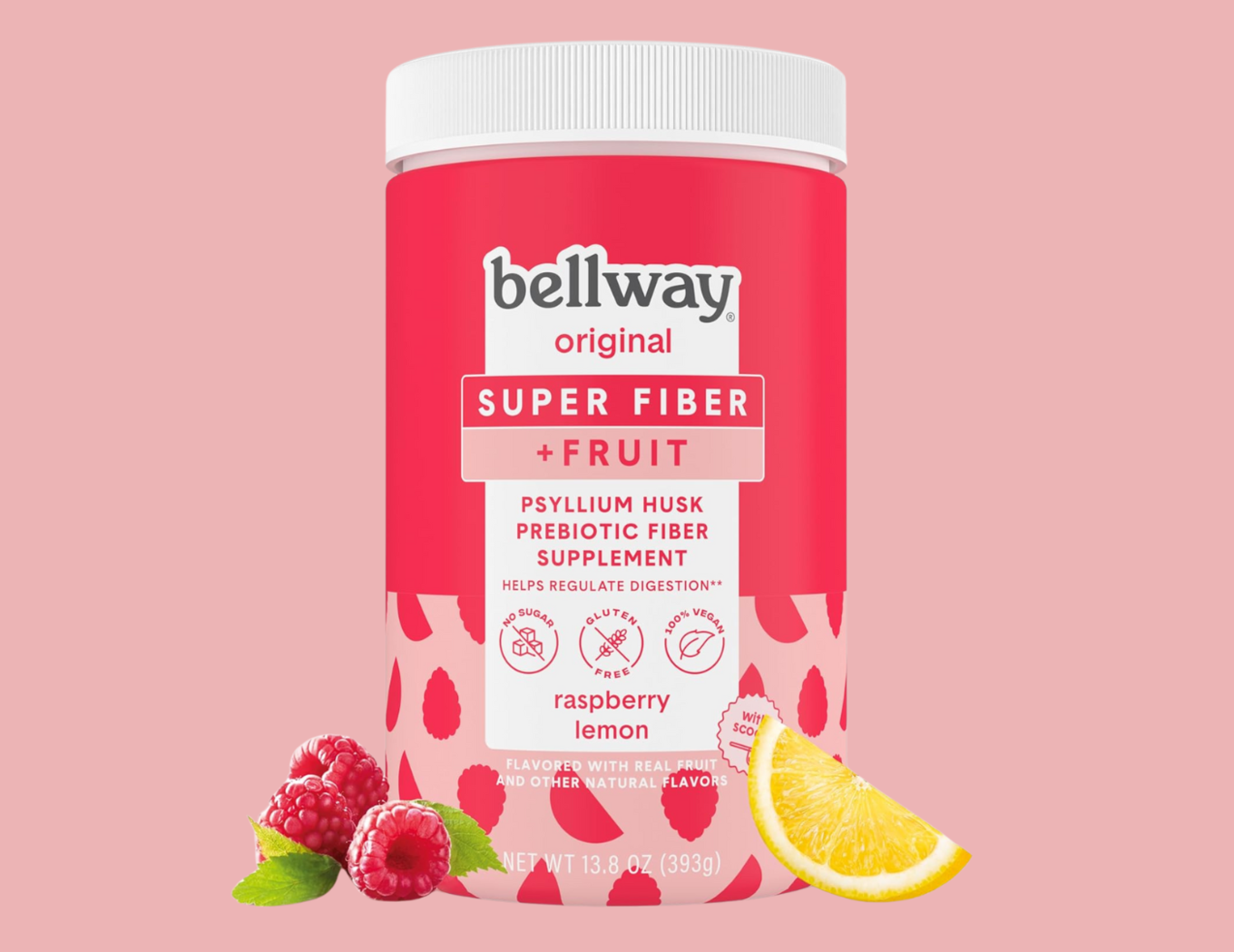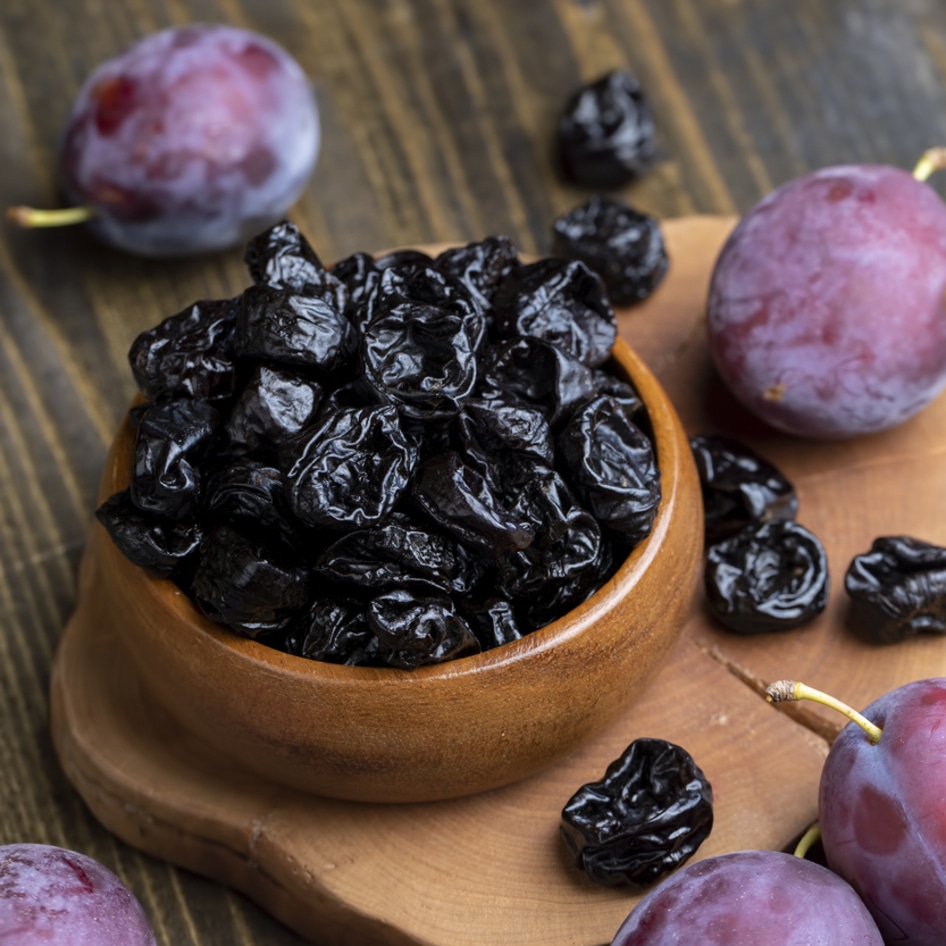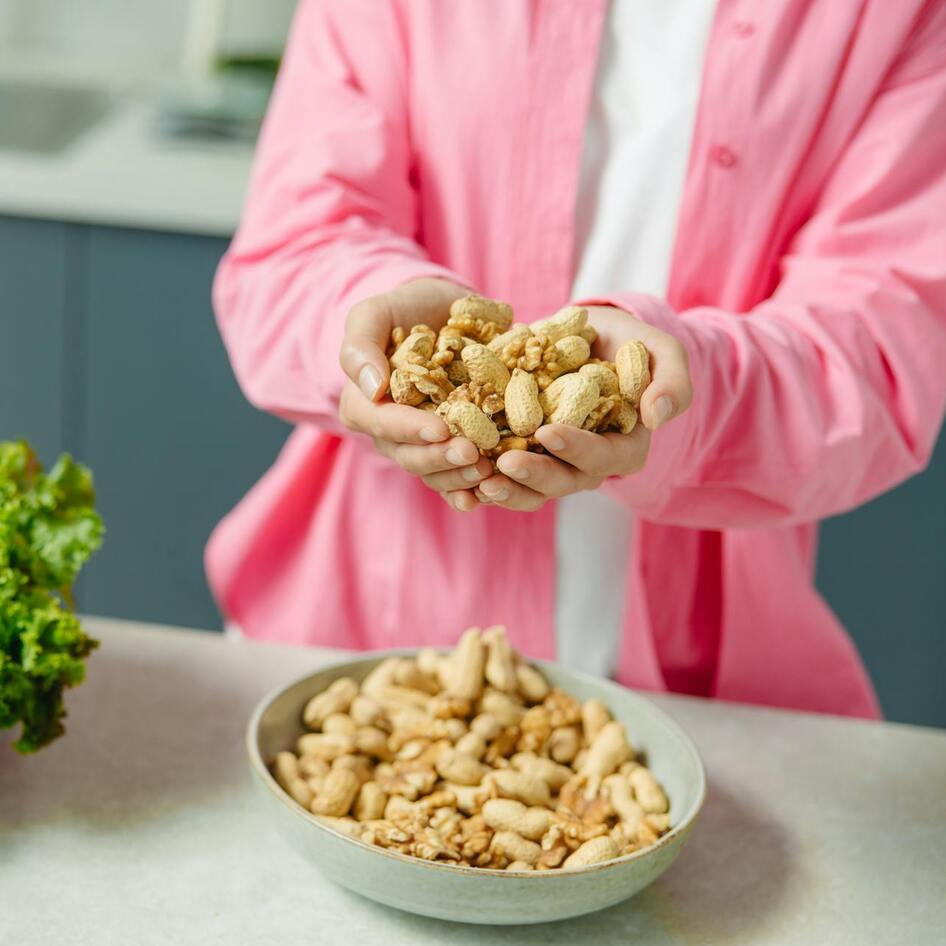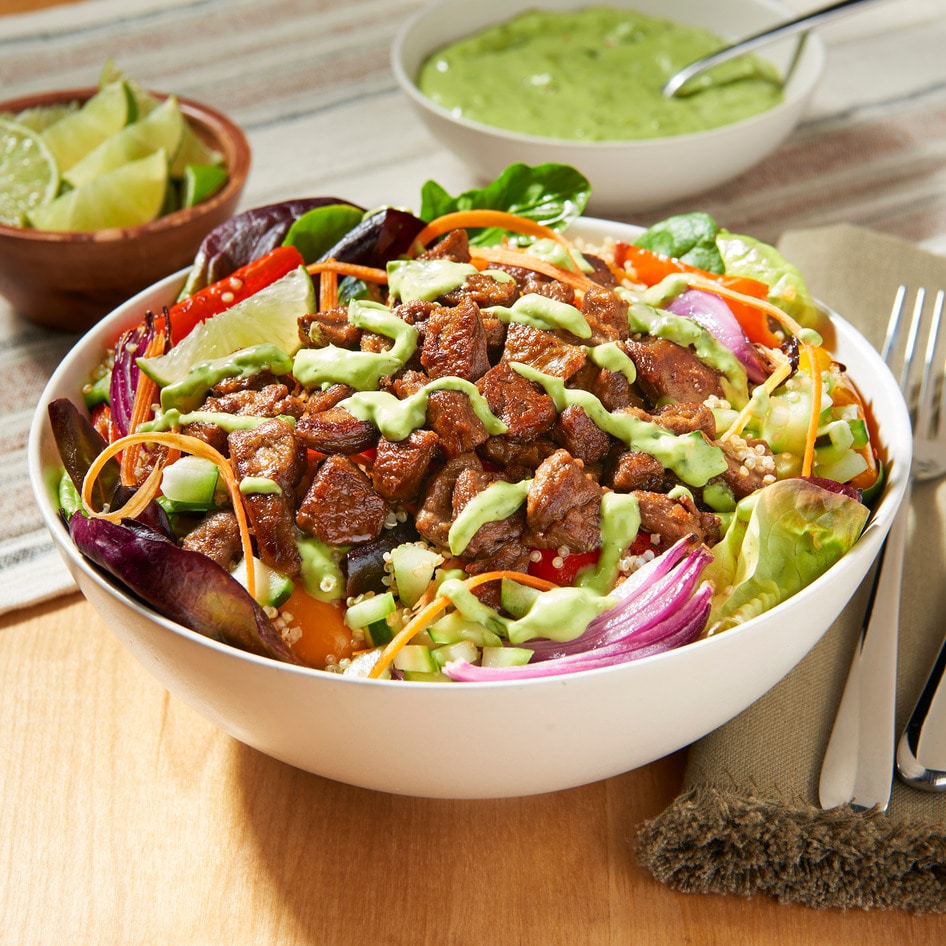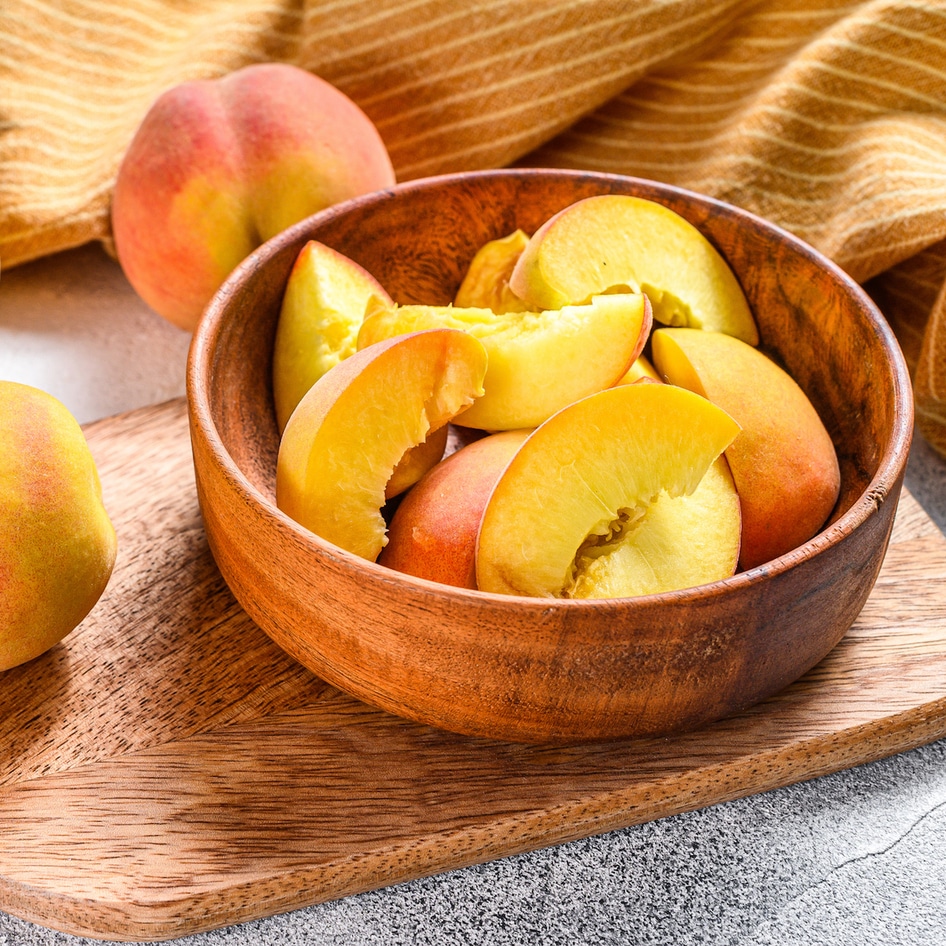Herbal extracts are a common treatment within Ayurveda, India’s 5,000-year-old medicine system. Turmeric, for example, is believed to support joint health according to its teachings, and ginger can aid digestion. Psyllium husk is another useful extract, believed to help relieve constipation. And, for that reason (as well as a myriad of other potential benefits), it’s becoming more popular in Western society. Here’s more about the plant, how it may help our health (claims that are also backed up by modern research), and some of the many ways that you can start taking it.
What is psyllium husk?
Derived from the seeds of the Plantago ovata plant, which is native to both India and Pakistan, psyllium husk—which is known as “Isabgol” or “Isphagula” in Ayurveda—is a form of soluble fiber. When the extract is ingested, it absorbs water and forms a gel-like substance in the digestive tract. It’s this gel that helps to bulk and soften up stool, making it easier to pass—hence why psyllium husk is believed to relieve constipation and promote good digestion.
The benefits of psyllium husk
Constipation is a common digestive issue—which is characterized by infrequent and sometimes painful bowel movements. It is uncomfortable and may lead to further symptoms like bloating, stomach pain, and hemorrhoids (due to excessive straining). It’s one of the most common gastrointestinal complaints in the US, affecting around four million people across the country.
 Pexels
Pexels
But for some of those people, research backs the idea that psyllium husk may provide some relief. “Psyllium is a bulk-forming laxative,” explains Medical News Today. “Initially, it works by binding to partially digested food that is passing from the stomach into the small intestine. It then helps with the absorption of water, which increases the size and moisture of stools.” For this reason, it may also help to relieve diarrhea, too, as it helps to slow down and firm up loose stool.
Psyllium husk has other benefits, too. Research suggests it may also help to improve blood sugar, for example, as well as lower blood pressure and reduce cholesterol (it also binds to cholesterol during digestion, helping to remove it from the body). Because of this, it may also help to support heart health and reduce the risk of stroke and heart disease. The latter is the leading cause of death around the world. In the US alone, it’s responsible for around one in five deaths every year.
How to use psyllium husk: 5 varieties to try
Before you make any dietary or lifestyle changes, it’s important to consider speaking with your healthcare provider first—especially if you are already taking medications. But if you decide to go ahead and add psyllium husk to your regular routine, here are five options to consider—all vegan, of course.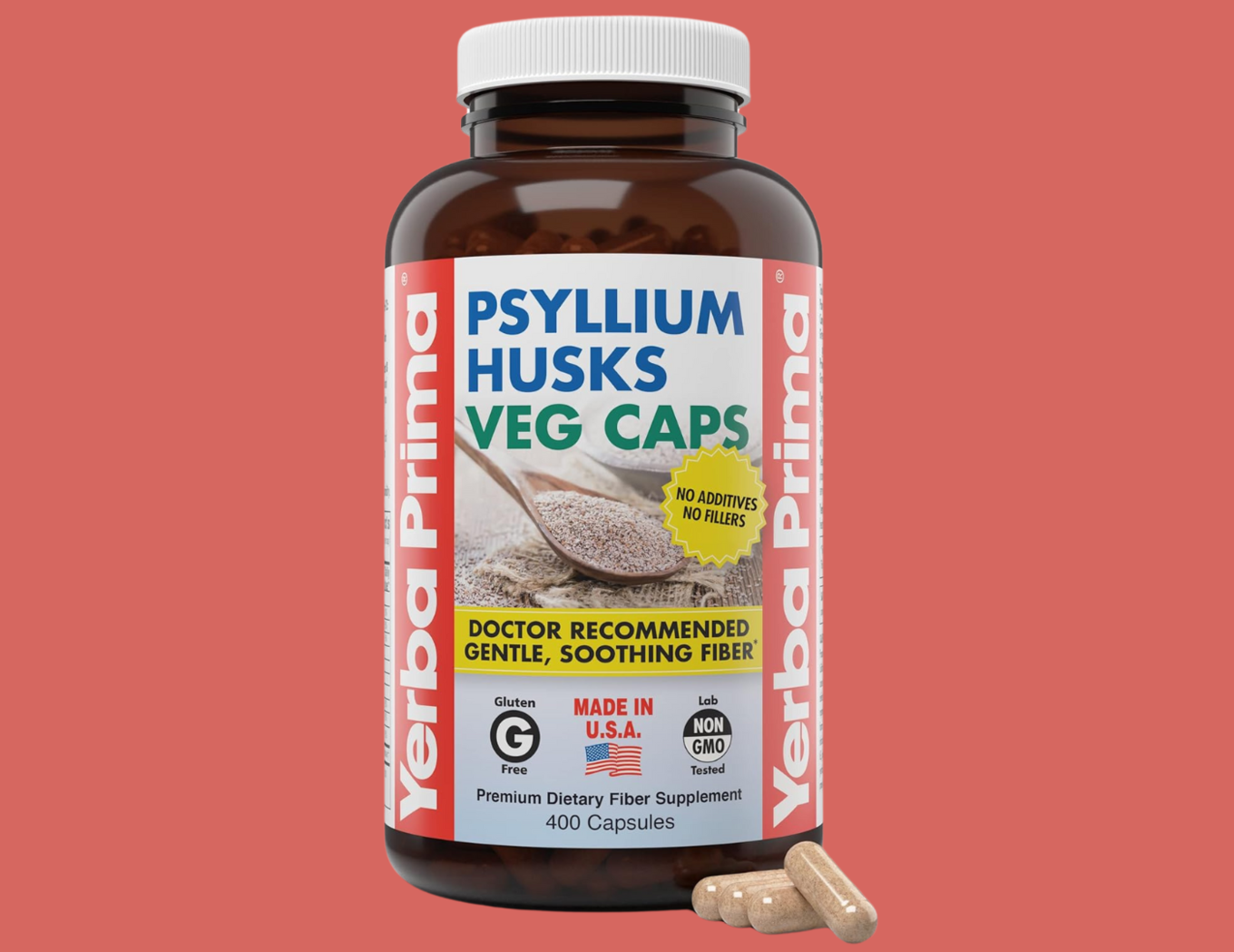 Yerba Prima
Yerba Prima
1 Daily capsules: Yerba Prima Psyllium Husks Veg Capsules
Oregon-based brand Yerba Prima offers vegan psyllium husk capsules, with 625 milligrams of fiber in each, (which, according to the brand, is 125 milligrams more than the standard). Each vegan, all-natural capsule is made without rice fillers, corn, or any other form of binder, too—it’s just 100-percent pure psyllium husk.
Find it here
2 Powder: Viva Naturals Organic Psyllium Husk Powder
If you’re not a fan of capsule supplements, you can also buy psyllium husk in powder form. This unflavored, organic powder from Viva Naturals, for example, is ideal for adding to baked goods, smoothies, soups, stews, pizza dough, and so much more.
Find it here
3Cereal: Nature’s Path Organic Smart Bran
Eating cereal regularly is another great way to stay on top of your fiber intake. This option from Nature’s Path doesn’t just contain psyllium husk, but it also packs in other fiber-rich ingredients, too, including oat bran, barley, and wheat bran. The result is a tasty cereal blend that is low in fat and boasts 17 grams of fiber per serving.
Find it here
4 Cookie: Metamucil Chocolate Fiber Thins
Cookie fans, listen up. You can treat yourself to a little chocolate and get the benefits of psyllium husk at the same time with these chocolate thins from Metamucil, which contain around five grams of fiber per serving. If you don’t fancy chocolate, the brand also offers its thins in Cinnamon Spice and Apple Crisp flavors.
Find it here
5 Fruity drink: Bellway Super Fiber Powder + Fruit
A fruity, sweet drink is arguably one of the best ways to get more psyllium husk into your diet. Bellway’s Super Fiber Powder + Fruit comes in several different flavors, including Pineapple Passion Fruit and Raspberry Lemon, all of which are not just tasty, but also sugar-free. It’s a refreshing, enjoyable way to up your fiber intake.
Find it here
For more on vegan ingredients, read:
JUMP TO ... Latest News | Recipes | Guides | Health | Subscribe
Here at VegNews, we live and breathe the plant-based lifestyle, and only recommend products we feel make our lives amazing. Occasionally, articles may include shopping links where we might earn a small commission, but in no way does this effect the editorial integrity of VegNews.

